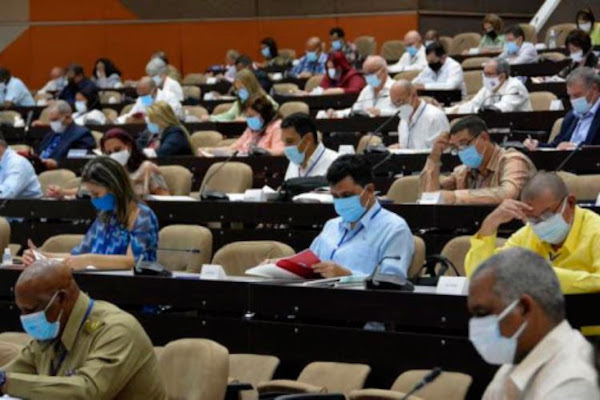CAMAGÜEY.-Just as large trees promote their growth with solar energy, the ideas generated in the Party Congresses constitute food for the Cuban Revolution. From the trunk of these meetings, new courses are defined for the development of the nation. Destinations are proposed that will be faithful to their roots, to the wills to unite Cubans as José Martí wanted.
"What a beautiful reality that the country has today what it did not have in '68, what it did not have at the advent of independence, what it did not have in '33, (...) a united political community, ideologically equipped, may it be the guardian of the future (...) ”, said our Commander-in-Chief, Fidel Castro, during the Balance Assembly of the East Province in 1974. History itself, in its capacity as a perennial witness, keeps the essence of those conclaves, promoters of unity.
With the founding of the Cuban Revolutionary Party (PRC), our National Hero, José Martí, placed the first block to build the road to a common good. That April 10, 1892, the Apostle established a path of freedom for Cuban emigration and those who from the island were willing to take up the machete against the Spanish metropolis.
The bases of the PRC were a definitive phase of how much had been done, in previous contests, to achieve common action on the battlefield. The ideological and organizational deficiencies, at times like the Guáimaro Assembly or the Jimaguayú Assembly, were overcome with the timely unification of criteria and the indisputable guidance of El Maestro. After the deed of the January 1st. 1959, those efforts would be kept alive.
With the legacy of the work of Marti and the contributions of the work of Carlos Baliño and Julio Antonio Mella, the birth of the Communist Party of Cuba (PCC) emerged as a continuation of the unifying work. Fidel referred to the fact that the inheritance of those who preceded us was “for which the combatants sighed for almost a century, from the Yara fight to the heroic confrontations against the Machado's dictatorship, and that (…) formed (…) a scientific doctrine , a political-revolutionary philosophy: Marxism-Leninism ”.
If in the olden days the battle scenarios were against the Spanish colony, today the battlefield looms on the ideological plane versus the interference of the North American government. One of the policies aimed at strangling our socialist system has been the imposition of the economic and commercial blockade for more than six decades. Sixty long years that have meant a major sacrifice for our people, and that increased with the debacle of the Soviet Union in 1991.
The immense vision of José Martí became a people. The longed-for unity that in his opinion should transcend social status, military ranks, races, sexes, religions ... reached its maximum expression with the PCC. In this sense, Fidel's leadership, always decisive, was in turn evidenced in the correct phraseology of the most universal of Cubans: “Unity of thought, which in no way means the servitude of opinion, is undoubtedly a indispensable condition for the success of any political program ”.
During the closing of the First Congress, held from December 17 to 22, 1975, attended by some 3 166 militants and 86 international delegations, the Commander-in-Chief communicated in the Plaza de la Revolución, before a great citizen concentration, the serious purpose to enter the not easy, but courageous path of communism: “(…) And what our people feel, experience in this act, is that sense of security, of historical continuity that our Party offers; what (…) it wants to express today is that it feels and understands that the Revolution is stronger and (…) more secure than ever ”.
From that historic moment, various agreements were signed, among which the promotion of solidarity with progressive countries and the revolutionary movements of Africa and Puerto Rico, the work objectives for the quinquennium 1976-1980 and the spiritual commitment of the inhabitants of the nation with the advance of the revolutionary process.
129 years after the creation of the PRC, and 46 since the first sessions of the communists' work, as a tribute to the heroes and martyrs of Playa Girón, the Eighth Congress, from April 16 to 19, under the slogan The Party is the Soul of the Revolution, was another momentous event for the nation.
Vital aspects for development such as the Economic and Social Guidelines, the Young Communist League, the situation of cadre politics and the peculiarities of the current complex context for ideological work promoted intense debates; all, without a doubt, will enrich the trunk of our sacred tree, the one that unites us when we pronounce the word Homeland.
Translated by Linet Acuña Quilez



